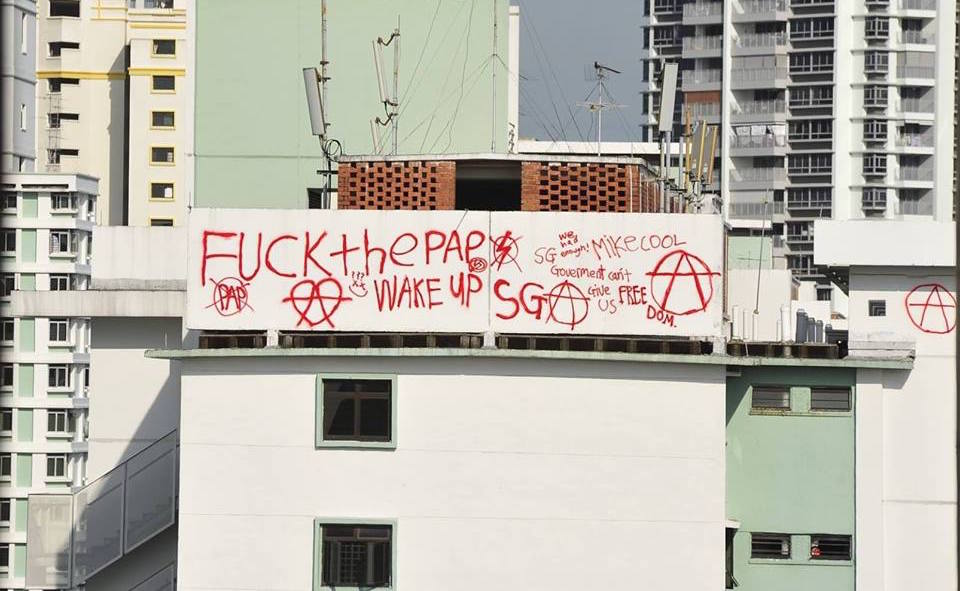- Joined
- Aug 20, 2022
- Messages
- 19,707
- Points
- 113
PARLIAMENT
Chan Chun Sing dismisses WP MP’s call for asset declaration for ministers
PAP Minister Chan Chun Sing rejects call from WP MP Louis Chua for Ministers to declare assets publicly as he refers to Singapore’s high Corruption Perceptions Index rank.
Published10 mins ago on 29 February 2024
By Yee Loon

Chan Chun Sing, Minister-in-charge of the Public Service, has rejected the Workers’ Party Member of Parliament’s proposal for ministers to publicly declare their assets.
He boasted Singapore’s enduringly favourable standing in the 2023 Corruption Perceptions Index (CPI) and emphasized the nation’s intrinsic methods of upholding trust within its governmental framework, defending against the WP MP’s call for Ministers’ asset declaration to bridge the trust gap between Singaporeans and elected officials.
Call for public declarations to strengthen trust
During the Committee of Supply 2024 debate on Wednesday (28 February), Mr Louis Chua, WP MP for Sengkang GRC advocated for the implementation of public declarations, emphasizing their significant role in ensuring public accountability, fostering trust between Singaporeans and elected officials, and preventing the spread of misinformation.He pointed out a notable contradiction in the context of Singapore’s fundamental commitment to incorruptibility. Despite this commitment, the public declaration of assets by Ministers is not a common practice in the country.
Presently, ministers disclose such information and their company directorships to the President through the Prime Minister, maintaining confidentiality in accordance with the code of conduct for ministers.
Mr Chua expressed his opinion that incorporating asset declaration into the code of conduct would serve as a proactive measure to counter potential allegations of corruption and unexplained wealth, further mitigating conflicts between private interests and public responsibilities.
“In countries like the UK, ministers are required to disclose their financial interests publicly, including investment properties. Perhaps we can consider adopting such a practice in Singapore as well.”
Furthermore, Mr Chua proposed a nuanced strategy to address privacy concerns, recommending the redaction of sensitive details like unit numbers for residential properties while making these declarations.
The issue of ministers declaring their property assets had been previously raised during a parliamentary session.
During a parliamentary session on the Ridout Road saga last year, Ms Poh Li San, PAP MP for Sembawang GRC suggested that it would be an interest of transparency for Minister Shanmugam and Minister Vivian Balakrishnan to declare all the property assets.
“However this was not the requirement under the code of contact at the time, it should be, ” said Mr Chua.
Minister Chan’s caution against blindly adopting foreign rules
In response, Mr Chua defended the importance of looking at the issue of transparency and accountability in the government system holistically.He asserted that since different countries have varying rules for individuals and organizations, “no one rule is a panacea to prevent corruption or lobbying.”
Minister Chan cautioned against the indiscriminate implementation of new rules, as they may not necessarily address existing problems and could potentially lead to unintended consequences.
He referenced Singapore’s consistent ranking in the Corruption Perceptions Index, suggesting that Singapore’s relatively low levels of corruption are not solely due to stringent rules on asset declaration.
“But those countries who supposedly have more elaborate rules are actually ranked much lower. For example, the UK was ranked between 11 and 20.”
Minister Chan then boasted three key aspects of Singapore’s approach to maintaining trust in its government system, including selecting individuals with the right values and integrity to uphold the law, cultivating a culture of teamwork and mutual accountability within the government to prevent misconduct, and implementing internal and external checks to detect and address issues of corruption or misconduct.
“This is how we have managed to keep our system relatively corruption-free and lobby-free all these years, ” he said while acknowledging that no system is perfect and must evolve to address emerging challenges.
Cautioning against blindly adopting rules from other countries, Minister Chan highlighted the importance of assessing their achievements and problem-solving capabilities compared to Singapore’s context.
He also raised concerns about the implications of extending asset declaration requirements beyond ministers to other senior officers in the Public Service.
“Why stop at the Ministers? Why not the Members of Parliament? Why stop at the Permanent Secretaries? Why not the Directors? ”
” I think for every rule that we put in, there are implications that we should consider carefully and ask ourselves whether the price that we pay is commensurate with the problem that we are trying to solve.”
Norway and Finland, among top 5 in 2023 CPI, mandate asset declarations for ministers
While Minister Chan argued that some countries with more elaborate rules rank lower, the statement could be misleading.In fact, In the 2023 CPI, Denmark led with a score of 90, followed by Finland, New Zealand, and Norway.
Checking publicly available data reveals that Finland mandates ministers to declare real estate, movable assets, cash, shareholdings, and relevant duties.
In Norway, ministers and MPs must disclose real estate, cash sources, employers, and business interests exceeding one per cent of a company’s capital.
Denmark employs a voluntary mechanism for ministers and MPs, publishing declarations on the Prime Minister’s webpage.
While Singapore retained its score of 83 in the 2023 CPI, the corruption charges faced by former PAP minister S Iswaran have raised concerns about the integrity of the system.
The 2023 CPI report cautioned that countries with high CPI rankings are not immune to corruption issues, citing cross-border cases and failures to prosecute transnational perpetrators as indicators of an underlying impunity problem.
Ms Urantsetseg Ulziikhuu, Asian regional coordinator at Transparency International, emphasized that a high score does not automatically imply a nation is free from corruption.
“The CPI focuses on evaluating how effectively governments combat corruption and implement mechanisms to maintain integrity in the public sector, including the prosecution of corrupt officials.”





